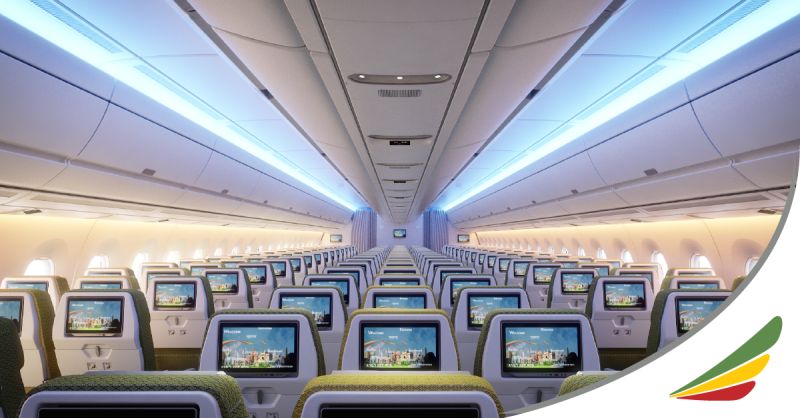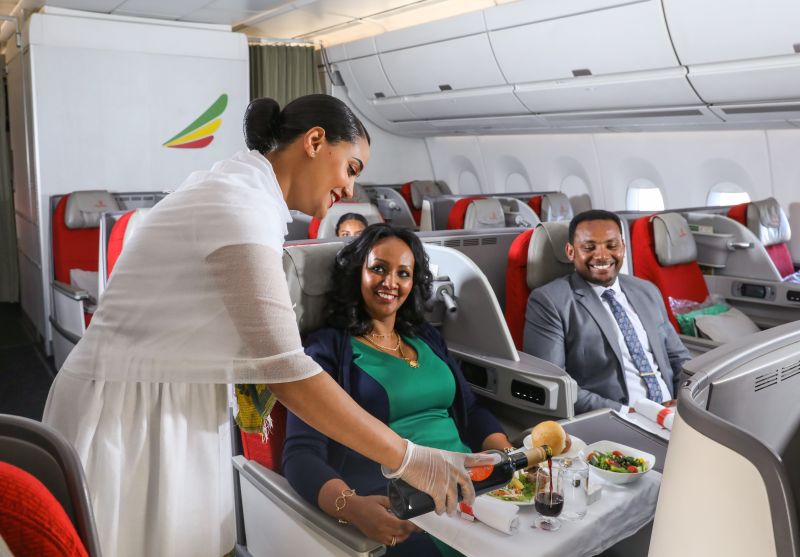Ethiopian Airlines Plans Tech Infrastructure Upgrade Amid Regional Growth
Share
A senior executive revealed at the APEX IFSA EXPO in Long Beach that Ethiopian Airlines intends to keep its two-class cabin configuration even as it accelerates technology investments across its fleet.
The carrier, which operates 184 aircraft and serves over 150 global destinations, has placed orders for 72 additional aircraft to be delivered within five years. However, despite industry trends toward premium economy cabins, Ethiopian plans to retain its current class structure.

“We have been thinking about three different options (economy, premium economy and business). But we have not yet been convinced we should have that (premium economy) cabin,” said Samson Arega Bekele, Group Vice President of Customer Experience at Ethiopian Airlines, who was being interviewed by APEX CEO Dr Joe Leader.
The airline’s business class configuration features a “high-end seat” with a one-two-one arrangement, which Bekele noted has received positive feedback, particularly on routes such as to Washington DC. “The feedback from our passengers has been very nice. So we will continue.”

On the technology front, Ethiopian has made significant progress, recently concluding agreements with the Chinese government for community-based IT services and Google for enhanced in-flight entertainment content. The airline plans to work with Intersat as its IT infrastructure provider starting in November to improve connectivity speeds.

Wi-Fi implementation has been a key focus. In March, complimentary service was introduced for business class. The carrier has achieved full Wi-Fi coverage across its wide-body fleet, and plans to extend this to narrow-body aircraft are currently under discussion with vendors.
This technology push comes as Ethiopian Airlines reported a turnover of $7.1 billion last year, with about 10% attributed to airport operations. The carrier, which transports over 70 million passengers annually, maintains one of the industry’s youngest fleets, with an average age of seven years.
Looking ahead to 2035, Ethiopian Airlines aims to strengthen its position in the international aviation market through its home base in Addis Ababa. While currently dominant in Africa, Bekele indicated the carrier’s ambition to become “one of the most significant players in the world” within seven to eight years.
The airline’s growth comes amid increasing regional competition, particularly from Middle Eastern carriers. However, Bekele emphasized Ethiopian’s distinct operational model and historical resilience, citing its profitable performance during the COVID-19 pandemic as evidence of its adaptability.


